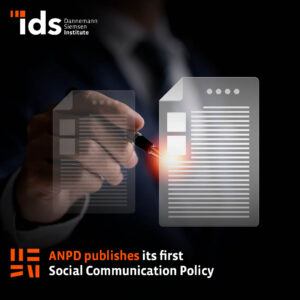08 de setembro de 2023
Share
ANPD publishes its first Social Communication Policy
On August 18, the National Data Protection Authority (ANPD) released the first edition of its Social Communication Policy. The document formalizes the authority’s institutional commitment to raising awareness about the importance of data protection and providing clear guidelines to ensure compliance with the General Personal Data Protection Law (LGPD).
The Policy in question comprises three central themes: (i) The context of personal data protection in the country; (ii) General guidelines for the ANPD’s communication activities; and (iii) Strategic Actions for ANPD Communication.
In the first point, the document provides a historical overview of the debates on data protection in Brazil and around the world. It then justifies the drafting of the Policy, since the ANPD seeks to promote a culture of data protection in the country and, in order to do so, needs an action plan to help achieve its objectives.
The authority then establishes objectives for its Policy and, among the main ones, determines that it should: guide the ANPD’s communication actions and direct the strategic actions of its institutional communication; and create and maintain flows of dialog that facilitate its interaction with its various audiences. It also sets out its values, guidelines, good practices and institutional channels and emphasizes that the Policy’s priority audience is the holder of personal data.
Finally, the ANPD talks about the creation of an organizational unit for its Social Communication area, made up of specialized professionals capable of making the execution of the Social Communication Policy feasible. Thus, the ANPD’s Communications Office (ASCOM) will provide information to national and international media outlets about the authority’s positions.
The document can be accessed via the following link: https://www.gov.br/anpd/pt-br/assuntos/noticias/ANPDPOLCOMUNICAO2023.pdf
Note: For quick release and cost control, this English version is provided by automated translation without human review.
